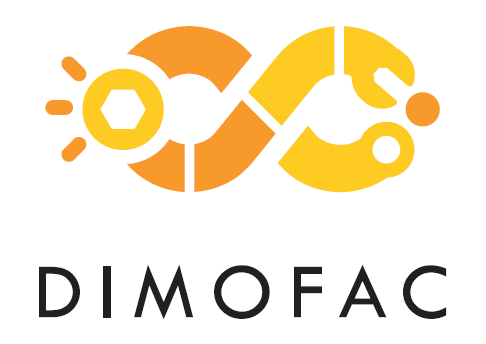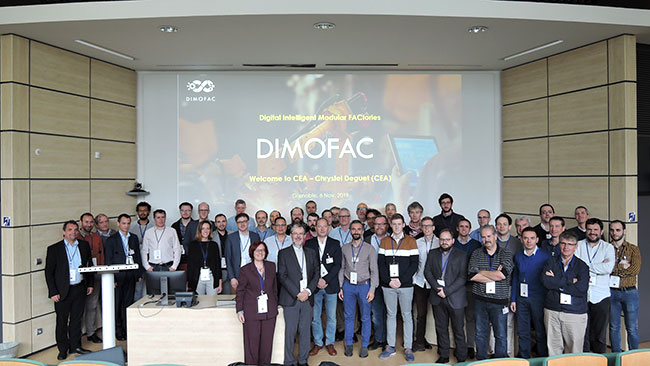 The ability to customize mass-produced consumer products is vital to the growth of today's manufacturing companies. However, modifying existing manufacturing processes to produce custom output is a major challenge. One solution is to create a digital twin of the factory and model manufacturing processes to enable virtual production management. When combined with a modular organization of the factory floor, this digital twin can be used to reconfigure production lines, making them faster and more agile and rendering processes more efficient. A digital twin can reduce the time it takes to reconfigure a production line by for example up to 75% for interactive displays, up to 50% for cosmetic packaging, aeronautics components, and 3D printing, and by up to 30% for razors and industrial modules.
The ability to customize mass-produced consumer products is vital to the growth of today's manufacturing companies. However, modifying existing manufacturing processes to produce custom output is a major challenge. One solution is to create a digital twin of the factory and model manufacturing processes to enable virtual production management. When combined with a modular organization of the factory floor, this digital twin can be used to reconfigure production lines, making them faster and more agile and rendering processes more efficient. A digital twin can reduce the time it takes to reconfigure a production line by for example up to 75% for interactive displays, up to 50% for cosmetic packaging, aeronautics components, and 3D printing, and by up to 30% for razors and industrial modules.
The EU DIMOFAC project will bring manufacturing companies digital modelling and reconfiguration solutions, a network of pilot production lines, "flagship" factories, and Digital Innovation Hubs offering R&D and tech-transfer services to support the validation and testing of the processes developed. A total of six industrial demonstrators will be implemented on project partners' (Philips, Sculpteo, Albéa, VDL, Schaltag, and Eire Composites) production lines. The demonstrators will integrate in particular tools developed by the CEA, including CIVA for in-line quality control using automated non-destructive testing (NDT) techniques and, mostly, Papyrus for the functional digital twin of manufacturing production lines.
A number of CEA technology platforms are involved in the project, including the Additive Factory Hub (AFH), FFLOR, PICTIC, SMART FACTORY KL, and MANUHUB@WG.
The DIMOFAC project brings together a consortium of 30 partners from across Europe, and is coordinated by the French Alternative Energies and Atomic Energy Commission (CEA). The official project launch took place on November 6 and 7, 2019 at the CEA campus in Grenoble, France.

The DIMOFAC project
+ Budget: > €19 million
+ Duration: 4 years
+ Partners: The French Alternative Energies and Atomic Energy Commission (CEA, coordinator), Siemens Industry Software SAS, Philips Consumer Lifestyle BV, Albéa Services SAS, VDL Industrial Modules, Schaltag AG, ESI Software Germany GmbH, Intrasoft Intl. S.A., Comau S.p.A., Sculpteo Fill Gesellschaft mbH, Eire Composites Teoranta, New Infrared Technologies SL, TTS Technology Transfer Systems SRL, Electronic and Optomechanic Engineering EXOM SL, FundingBox Research APS, TopSolid, Innovalia, Brainport Industries Cooperatie UA, Technologie Initiative SmartFactory KL e.V., European Association of the Machine Tool Industries, Switzerland Innovation Park Biel/Bienne AG, University of Patras (LMS), Centre Technique Industriel de la Plasturgie et des Composites, Fundacion Tecnalia Research & Innovation, Organisatie voor Toegepast Natuurwet. Onderzoek (TNO), Deutsches Forschungszentrum für künstliche Intelligenz GmbH, Association de Investigacion Metalurgica del Noroeste, Politecnico di Milano, and Datapixel.
|
DIMOFAC will receive €14 million in funding from the European Commission under contract no. 870092.